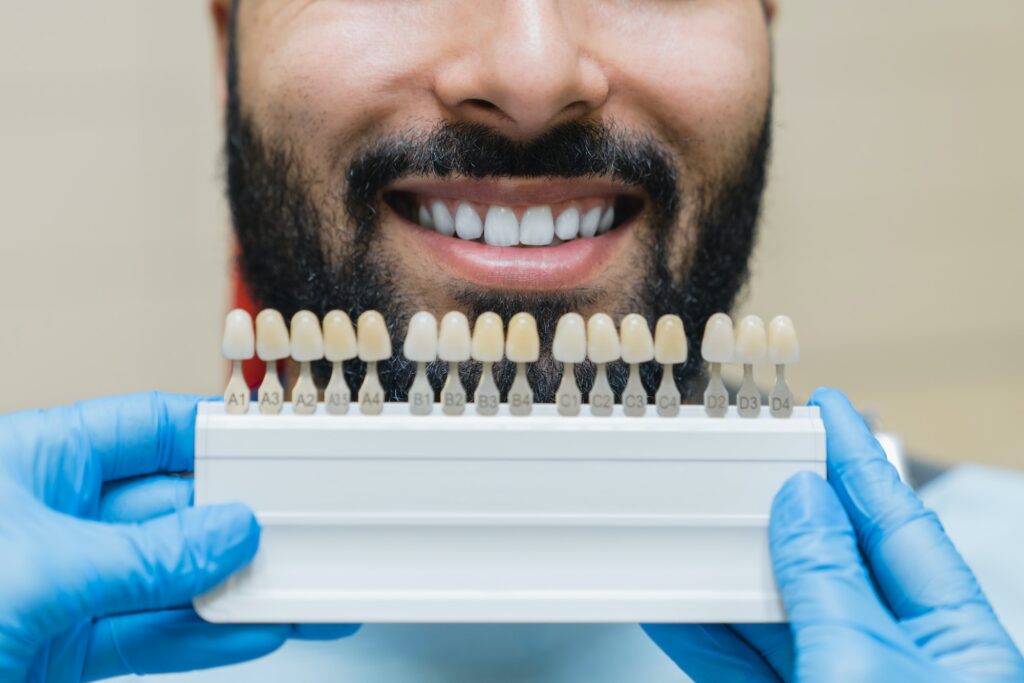
Your Family Dentist in Brentwood, MO
Brentwood Family Dentistry has been serving the Brentwood and surrounding communities since 1993. Michael and Dan Doherty purchased the practice in 2021 with the goal of continuing the great dental care started by their father Dr. Michael J. Doherty and his longtime partner Dr. James Rhea.
As a family practice, we treat all our patients like they are a member of our own family – with honesty and respect. Our goal is to provide high-quality dentistry to patients of all ages and become their lifetime dentist. We provide high-quality, friendly, and comfortable patient care in all aspects of advanced and general dental care.
Meet the Doctors

Dr. Daniel T. Doherty
A graduate of the University of Missouri Dental School in Kansas City. He also holds the degree of Bachelor of Arts in Biology from University of Missouri-Columbia.

Dr. Michael J. Doherty
A graduate of the University of Missouri Dental School in Kansas City. He also holds the degree of Bachelor of Arts in Chemistry from St. Louis University.

Dr. Michael R. Doherty
A graduate of the University of Missouri- Kansas City Dental School. He also has a Bachelor of Science Degree in Biology from Truman State University.

FILLINGS
Our practice uses composite resin to fill teeth with cavities by removing the decayed material, then replacing it with the resin. This material is strong and closely matches the natural appearance of the tooth.
INVISALIGN
Invisalign is a way for people to straighten crooked and hard to clean teeth with clear aligner trays and without wires and brackets. No one will know you are wearing anything!
Invisalign treatment consists of a series of clear plastic trays, or aligners, that you switch out about every two weeks. Each aligner is individually manufactured with exact calculations to gradually shift your teeth into place.


PORCELAIN VENEERS
Dental veneers are made of a very thin, durable porcelain material and are applied onto the surface of your teeth. They create a natural look and give long lasting results. Veneers can be used to fix chipped, broken, misshaped or abnormally spaced teeth. They look just like your enamel and are permanent.
Coffee, smoking or eating highly pigmented foods eventually take their toll on your teeth, turning them an unattractive shade of yellow or brown. Stained enamel can be bleached, but it can become stained again after a short time.
Primescan Technology
At our dental practice, we use CEREC Primescan technology to provide you with a range of benefits. With same day crowns, you’ll be able to walk out of our office with a new crown in just one appointment. Our digital impressions are incredibly accurate, thanks to the Primescan’s ability to create precise 3D models of your teeth. We can even use the Primescan to perform Invisalign scans, so you can straighten your teeth without traditional braces. Finally, our implant restorations are made easier and more precise with the help of the CEREC Primescan.
New Patient?
Meet the Team
We are dedicated to your smile and are pleased to offer a complete array of general and specialty dental services of the highest standard to exceed your dental aspirations. Whether you are coming in for a dental checkup, cosmetic dentistry such as veneers & teeth whitening, or requiring dentures or dental implants, our excellent group of dentists and hygienists are here for you.
Our family dentists provide high-quality, friendly and comfortable patient care in all aspects of advanced and general dental care.


